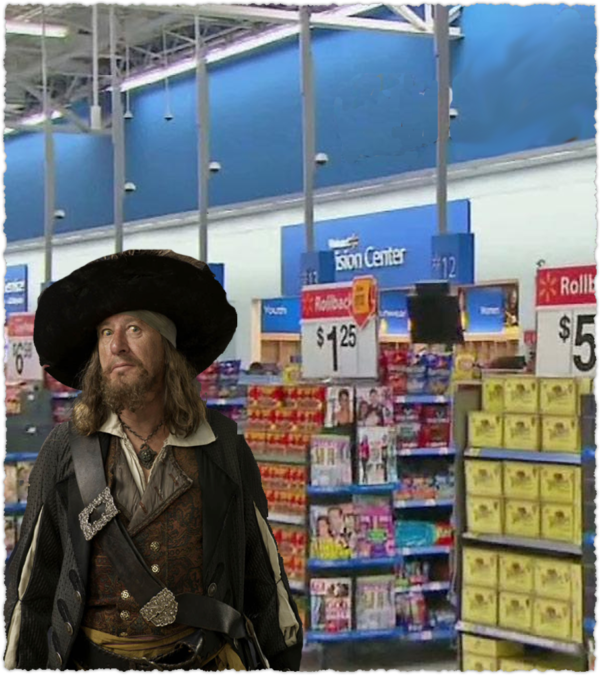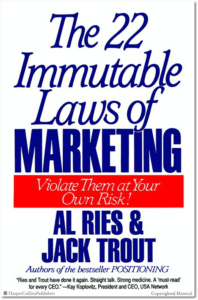Pirate Marketing

Marketing is much like pirating. Let me explain. Remember the line from “Pirates of the Caribbean” when Geoffrey Rush, as Captain Barbossa, explained to Elizabeth, who was trying to bargain with the pirate based on the principles of parley, that the rules of pirating were “…more like guidelines.”
Marketing is the same way. There are few one-size-fits-all absolutes in setting your marketing strategy. That’s because markets are dynamic, always shifting and changing based on consumer demand and disruptions, such as new product introductions or emerging competitive threats. This is supported by the principle of positioning, which says that companies don’t position products, people do.
That said, there are general marketing guidelines, which we could also call principles, that have consistently been relevant for decades, even since the dawn of the Industrial Revolution.
Authors Al Ries and Jack Trout did an excellent job of outlining this concept in their classic book “The 22 Immutable Laws of Marketing.” While “Laws” may sound more absolute than “guidelines,” one would have a hard time arguing with their points, because most of the Laws just seem like common sense.

If I were to pick one law to highlight in a short blog post such as this, I’d take the natural step of starting with what the authors define as the first law of marketing: “The Law of Leadership.”
This law says that “It is better to be first than it is to be better.” The authors use a compelling example. What’s the name of the first person to fly the Atlantic Ocean solo? Even if you’re not a history buff, you probably know the answer: Charles Lindbergh. That’s because his name has been burned in our brain from an early age as the “first ever.”
Okay, now get ready for the questions to get a little harder: “What’s the name of the second person to fly the Atlantic Ocean solo? Not so easy, right?
His name was Bert Hinkler, and he actually had a more successful flight than Lindbergh. He flew faster and consumed less fuel. Yet, his name is a footnote in the history of aviation.
Many companies approach their marketing programs using the Bert Hinkler method — wait until something new is introduced or demand develops and then enter the market claiming to be better, cheaper, faster, etc. But historically, consumers have not responded to this message, even though it makes sense logically. This is why, even though the ingredients show on the package as exactly the same, most people will choose the branded leader instead of the generic equivalent.
Generally, if you don’t know the first name in a category, you can supplement “first” with “leading.” For example, what’s the first university in America? Don’t know? Then take a guess by suggesting what conventional wisdom says is the leading college. If you said Harvard, you’d be correct!
So how does this apply to brands and marketing, particularly if your brand or product is not the first in a category or first to market? Fortunately, the Guidelines of Marketing allow for exceptions. And that exception, according to Ries and Trout is “The Law of the Category,” which says, “If you can’t be first in a category, set up a new category you can be first in.”
We’ll cover this in an upcoming blog. We’ll set up a teaser for that blog post with this question: “What’s the name of the third person to fly the Atlantic Ocean solo?” Chances are, you definitely know the answer. Stay tuned for more.
If you would like to discuss how we can help you build an effective marketing strategy for your brand, service or product, give us a call at (310) 684-3552 or send me an email at the address below.

President Threlkeld Communications
Bill Threlkeld is the president of Threlkeld Communications, a marketing communications and public relations firm that helps businesses develop the right marketing strategies to grow their businesses and meet financial goals. He can be reached at bill@threlkeldcomm.com
